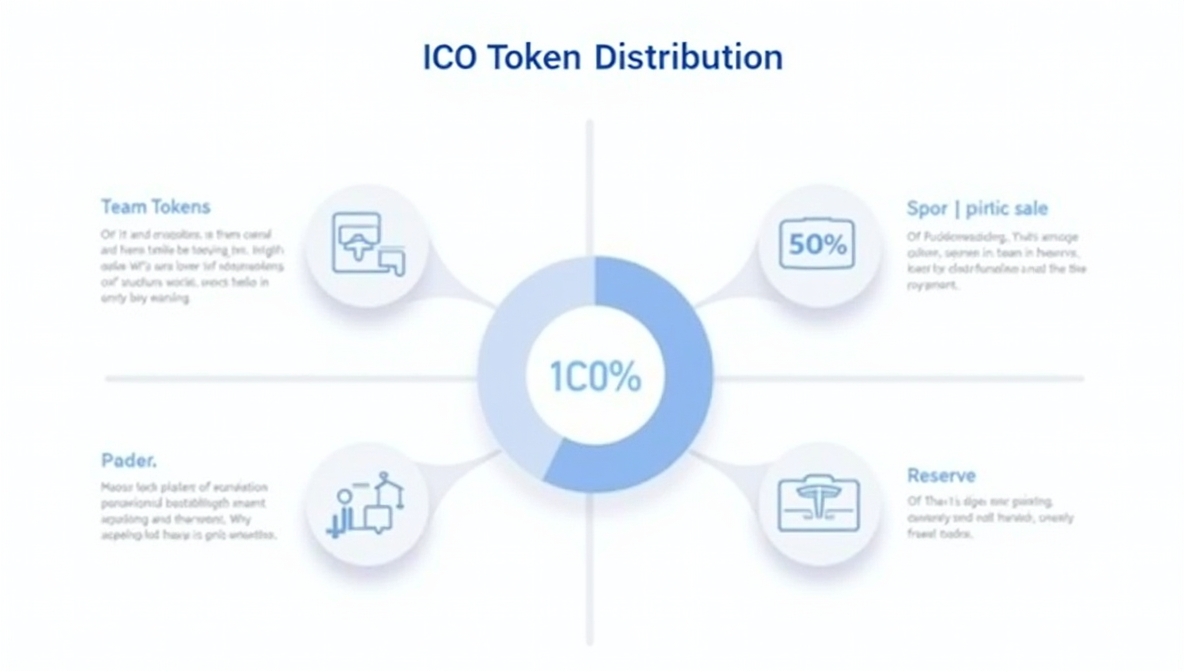Dubai has become a serious hub for global trade, with world-class infrastructure, a tax-efficient setup, and clean regulatory routes. That makes starting a business in Dubai as a foreigner highly practical and increasingly structured, which is why entrepreneurs and investors are coming in from all angles.
One major shift is that foreign investors can now own 100% of companies in over 1,000 commercial and industrial sectors, including on the mainland. This update came through Federal Decree-Law No. 26 of 2020, scrapping the old rule that required a local Emirati partner to hold a majority stake.
The tax side isn’t bad either. Since 2023, a 9% federal corporate tax applies only to profits above AED 375,000, keeping the overall rate low (Official Portal of the UAE Government). There’s still no personal income tax. And if you’re operating from a qualifying free zone, you may pay 0% corporate tax and enjoy full repatriation of profits and capital, assuming you meet the requirements.
If you’re exploring Dubai business setup for foreigners, 2025 is a smart window. You can even begin the Dubai business registration process without holding a visa; you only need to understand the license type and whether you’re going with free zone or mainland.
Legal Requirements: What Every Foreign Entrepreneur Should Expect
When starting a business in Dubai as a foreigner, you need more than just an idea and ambition. The legal setup matters, and the UAE has made the rules accessible, but not optional. Everything starts with choosing a business activity, locking in the right license, and registering a valid trade name.
License Type and Legal Structure
You can pick from over 2,000 listed business activities. This choice shapes your license: Commercial, Professional, Industrial, or Tourism. Your legal structure, such as LLC, sole establishment, or branch, will depend on the activity and ownership model.
Trade Name Registration and Initial Approvals
Your trade name needs to be unique, clean, and approved. That means no religious references or recycled names. Mainland setups go through Dubai DET, while free zones each have their own protocols.
Before anything gets official, you’ll need initial approval: a basic greenlight to move forward with documentation and site rental.
MOA and Business Location
If partners are involved, you’ll draft a Memorandum of Association (MOA). It spells out shares and structure. Also, every company, be it mainland or free zone, needs a registered UAE address. Free zone businesses can operate from flexi-desks or shared workspaces. But if you’re setting up on the mainland, you’ll need to sign a commercial lease and register it through the Ejari system.
These steps apply across the board, whether you’re sorting out company formation in Abu Dhabi or comparing free zone vs mainland Dubai for foreign investors.
Choosing Your Business Structure: Free Zone, Mainland, or Offshore
A big call when starting a business in Dubai as a foreigner is picking your jurisdiction. You’ve got three to consider: mainland, free zone, and offshore. Each comes with trade-offs depending on your goals.
Mainland Company
Licensed by Dubai’s Department of Economy and Tourism (DET), mainland companies can operate freely across the UAE and abroad. Since the 2020 reforms, most sectors now allow 100% foreign ownership without a local sponsor. You also get full access to government contracts and the domestic market.
This company type is best for entrepreneurs who plan to sell directly within the UAE, want offices or staff based across the emirates, or aim to win government contracts.
Free Zone Company
Free zones like DMCC, DIFC, or Dubai Media City are industry-specific zones that offer streamlined setup, full ownership, and 0% corporate tax on qualifying income. Registration is faster, with less paperwork, and profits can be fully repatriated.
International traders, startups, or service businesses that don’t need to operate directly in the UAE market can highly benefit from this option.
Offshore Company
Offshore entities, such as those in RAK ICC, are set up for business activity outside the UAE. They can’t trade locally, but offer privacy, tax exemption, and minimal operational overhead.
This type is great for holding companies, IP asset management, or foreign investors needing a discreet, low-cost setup.
Dubai Business Registration Process 2025: Step-by-Step for Foreign Entrepreneurs

Starting a business in Dubai as a foreigner is structured, but still flexible. Whether you go mainland or free zone, here’s how the typical process unfolds:
Step 1: Confirm Activity and Jurisdiction
Nail down what your business will do and where it should live. Mainland setups serve the local market; free zones are built for exports, remote ops, or specific sectors.
Step 2: Reserve Your Trade Name
Pick a unique, regulation-compliant name and get it approved by DET or your free zone authority. Expect to pay AED 500–2,000 for this step.
Step 3: Get Initial Approval
This no-objection certificate says the authority is fine with your proposed setup. You’ll need it before submitting formal documents.
Step 4: Legal Documents and Notarization
LLCs need a notarized MOA (Memorandum of Association), while some licenses require a Local Service Agent (LSA) agreement. These must be finalized in Arabic and notarized locally.
Step 5: Secure Your Business Location
Free zones let you pick flexi-desks or shared offices. Mainland companies need a commercial lease and Ejari registration.
Step 6: Submit Final Application and Pay
Send in all documents. Once approved, you’ll get a payment voucher. Pay the licensing fees to get your trade license issued.
Step 7: Receive Your License
Once paid, your business license is live. The process can take a few days to a couple weeks if the paperwork is solid.
Documents You’ll Need
- Completed application
- Passport copies (shareholders, managers)
- UAE entry stamp or visa copy
- Trade name reservation + initial approval
- Notarized MOA
- Office lease or Ejari certificate
Visa Requirements and Options
Once your license is issued, apply for visas for yourself and also for you employees or family.
- Establishment Card: Registers your company with immigration
- Entry Permit: Lets you enter the UAE to activate residency
- Status Change: Required if already in-country
- Medical Test + Biometrics: Needed for all visa applicants
- Visa Stamping: Residence visa stamped into your passport
Standard investor visas last 2–3 years. But if you meet the criteria, the UAE Golden Visa offers a 10-year option for those investing AED 2M+ in property or business.
Cost Breakdown: What to Expect When Setting Up in Dubai
When starting a business in Dubai as a foreigner, you need to get numbers right and pay careful attention to the entire cost structure, from setup to maintenance to operational costs. If you’re opting for a mainland setup, expect to pay between AED 12,000 and AED 30,000 in 2025, which typically covers your business license, approvals, and registration fees. Free zones are often cheaper up front, with some packages like RAKEZ starting as low as AED 5,699 for zero-visa options. More comprehensive free zone setups that include visa eligibility will generally land between AED 9,000 and AED 30,000.
Here’s a more detailed breakdown of potential one-time fees:
| Cost Component | Estimated Range (AED) | Notes |
| Trade Name & Initial Approval | 650 – 2,500 | Paid to the relevant economic department or free zone authority. |
| Trade License Fee | 10,000 – 40,000+ | The core fee, dependent on activity and jurisdiction. |
| Notarization of MOA | 1,000 – 3,000 | For drafting and attesting legal documents. |
| Establishment & Immigration Card | 2,500 – 3,500 | Required for visa processing, primarily for mainland. |
| Investor/Partner Visa | 4,000 – 7,000 | Per person, includes medical test and Emirates ID. |
| Office Space (Annual Rent) | 10,000 – 100,000+ | From a flexi-desk in a free zone to a dedicated mainland office. |
Sources: KWS Middle East and Shuraa
Hidden and Ongoing Costs
- License Renewal: This is an annual payment to keep your business legally active. It’s usually similar to your initial licensing fee. Failing to renew on time leads to daily fines and suspension of your business.
- Office Rent: You must maintain a physical or virtual office. A basic flexi-desk runs AED 10,000 to 20,000 per year, while a private office can cost upwards of AED 50,000 annually.
- Health Insurance: Mandatory for all employees and owners. You’ll need to budget for annual coverage, with costs depending on the plan and provider.
- Document Attestation: Any non-UAE documents (e.g., academic certificates, incorporation records) must be attested by the UAE embassy in your home country and translated into Arabic, which comes with added fees.
- Banking Requirements: Most corporate bank accounts need you to maintain a minimum average balance, anywhere from AED 10,000 to AED 100,000, to avoid monthly penalties.
- Accounting + Tax Filing: Now that corporate tax is in play, businesses must keep full accounting records and file annual returns. You’ll need to hire an accountant or auditor, often costing thousands per year.
- Gov Fees: Nearly every official application or document involves service charges, which are small on their own, but they add up over time.
Banking and Financial Setup for Foreign-Owned Companies

Securing a corporate bank account is mandatory once your company is licensed, but it’s also one of the trickiest steps in starting a business in Dubai as a foreigner. UAE banks follow strict AML and KYC rules, so expect a detailed screening.
The process isn’t what it used to be. These days, you’ll need to prove your company has real operational substance, that you’re a credible shareholder, and that funds are legitimate. Timelines vary as some accounts open in two weeks, while others take months, depending on your nationality, company type, and how clean your documents are.
What You’ll Need for Proper Financial Setup
- Trade License: Proves your company is legally formed.
- MOA: Required for partnerships like LLCs.
- ID Documents: Passports, visas, and Emirates IDs for shareholders and signatories.
- Lease Agreement (Ejari): Needed to show a real office, as banks often reject flexi-desk setups.
- Business Plan: Must include model, projections, market strategy, and source of funds.
- Shareholder Profiles: Experience matters. CVs or bios help.
- Proof of Operations: Contracts, websites, or invoices all help build credibility.
Minimum Balance Rules
Traditional banks like Emirates NBD or ADCB require you to maintain AED 25K–200K in average monthly balances to dodge fees. Furthermore, digital banks such as Wio Bank and NeoBiz are more relaxed, offering zero-balance options, though they come with transaction limits.
If you’re navigating Dubai business setup for foreigners or dealing with the cost of starting business in Dubai as an expat, banking will likely be your biggest compliance checkpoint. Plan accordingly.
Common Mistakes to Avoid When Launching in Dubai
The path to successfully starting a business in Dubai as a foreigner is well-trodden, but it has common pitfalls that can bleed your capital and cause significant delays. These are the missteps that come back to bite:
Mistake 1: Skipping Market Research
Don’t assume your home-market playbook will work here. Dubai is a diverse, high-context market. Without proper data on demand, competition, and pricing, you’re flying blind.
Mistake 2: Choosing the Wrong Zone
Picking a free zone when you need mainland access (or the reverse) creates a logistical mess later. Your choice between mainland, free zone, and offshore should be driven entirely by your long-term business goals.
Mistake 3: Underestimating Total Costs
A trade license is just the entry fee. There are real costs ahead, like visas, office rent, attestation, insurance, and banking minimums. Make sure you create a detailed budget that includes at least six months of operating capital.
Mistake 4: Ignoring Compliance
Since the corporate tax law kicked in, there’s no coasting. ESR (Economic Substance Regulations), UBO (Ultimate Beneficial Ownership), and financial reporting are now baseline obligations. Missing any of them means fines or license suspension.
Mistake 5: Disregarding Culture
Impatience, poor timing, or ignoring local etiquette, especially during religious observances like Ramadan, can erode trust fast. Business here still hinges on relationships.
Mistake 6: Delaying the Bank Account
Banking takes time, and waiting until the last minute stalls everything. Apply right after licensing, and prepare every required document to avoid unnecessary hassles.
Mistake 7: Going Solo
Trying to manage Dubai’s rules and forms alone is a shortcut to errors. For any foreign investor business registration in Dubai, hiring a qualified consultant is a strategic insurance and a must-have.
Based in the UAE, our team at Tokenova guides startups and companies that are building with tokenization at the core. Whether you’re in tourism, finance, climate, real estate, logistics, or entertainment, we help you with each stage of your startup and offer legal consultations, including DMCC.
Final Words
If you’re starting a business in Dubai as a foreigner in 2025, you’re working with one of the clearest regulatory and tax environments globally. Foreign ownership is now open across most sectors, and corporate tax remains minimal. Also, you don’t need a visa to start. And you can register on the mainland or in free zones, depending on your operational scope.
That said, setup still demands precision when it comes to trade name rules, the jurisdiction choice, the license category, and the MOA. Moreover, your banking will require full documentation, and your compliance obligations start on day one.
Resources: MOEC











